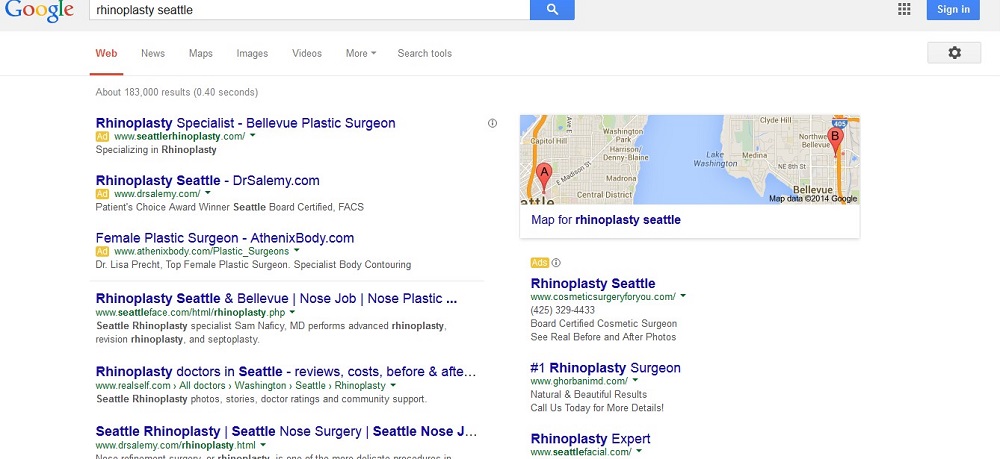 In 2015, Google announced the use of RankBrain to help determine the ranking of websites and content, essentially changing the local niche of SEO for plastic surgeons and related medical professionals.
In 2015, Google announced the use of RankBrain to help determine the ranking of websites and content, essentially changing the local niche of SEO for plastic surgeons and related medical professionals.
Although Google RankBrain has been part of the conversation among surgeon SEO experts for months, most of them are still not sure of what it is, what it does, and the strategies they can adapt to make their sites more RankBrain friendly.
What is RankBrain?
RankBrain is the name of the artificial intelligence that Google uses to help analyze search queries. It is rooted in Google’s machine learning system, and works with other algorithms within the Hummingbird system. It enables the search engine giant to analyze search queries, including the vaguest and most ambiguous ones and link them to the most relevant results.
It finds patterns related to searches, makes predictions about what people mean by a particular search, and returns the most appropriate results. RankBrain’s success has surprised even Google engineers, and the company has stated that the AI is its third most important signal.
How RankBrain Affect Google’s Search Engine Results?
In essence, RankBrain has made Google Search smarter. Instead of simply returning results based on keywords, this artificial intelligence analyzes individual sentences and returns relevant results. For example, in the past, a search phrase such as “who are the best plastic surgeons in San Francisco” would return a various results because of the keywords “best” and “surgeon,” which may or may not be entirely on-point with searcher intent.
However, the searcher is obviously looking for reviews and information about some of the top plastic surgeons in the San Francisco. RankBrain is meant to look at the entire text, analyze it and try to make predictions about what this searcher really meant. This helps it return a more appropriate result, such as a web page that has a negative review of Titanic.
Therefore, instead of picking individual keywords from a query and sending the searcher on a wild goose chase by bringing up results that have these specific keywords in them, RankBrain helps Google return results that are relevant to the context of the search query.
Leveraging RankBrain for Plastic Surgeon SEO
The first thing to remember is that content is still king, even with the launch of RankBrain. Websites that create superior content will rank higher. However, plastic surgeon SEO strategies need to focus on creating 10x content, which means that their content must be 10 times more superior than the best results found on Google’s search engine results pages for a specific topic.
Since RankBrain considers the context of a search query and looks for relationships and patterns, website content needs to answer as many questions as possible about their products and services.
For example, Google will now return relevant results for queries such as “long-term effects of gummy bear breast implants.” Therefore, a plastic surgeon needs to adapt his content to answer such queries, instead of simply optimizing for few keywords such as “breast implants”.
Plastic surgeon SEO companies and independent SEO specialists should continue using whitehat SEO techniques, as these are fail-proof strategies that never die. This means that they should write unique and detailed content that answers more questions.
Content and SEO strategies for plastic surgeons should also answer questions that people have not asked yet, but that are related to the services they provide. They should publish enough to become an authority in their particular field. Their content should be evergreen, which means that it should remain relevant for many years to come.
Plastic surgeons and SEO providers should also focus on technical improvements on their websites and invest in marketing training to get the most from their efforts. This means that SSL, microdata, and site speed are more important than ever. Google is getting smarter, and RankBrain can help to preserve the integrity of the search engine by returning results that are more relevant to the user. This means that SEO’s, searchers marketers, and even web designers need to create content that is ten times better than that of their competitors to rank highly in Google.







Leave a reply